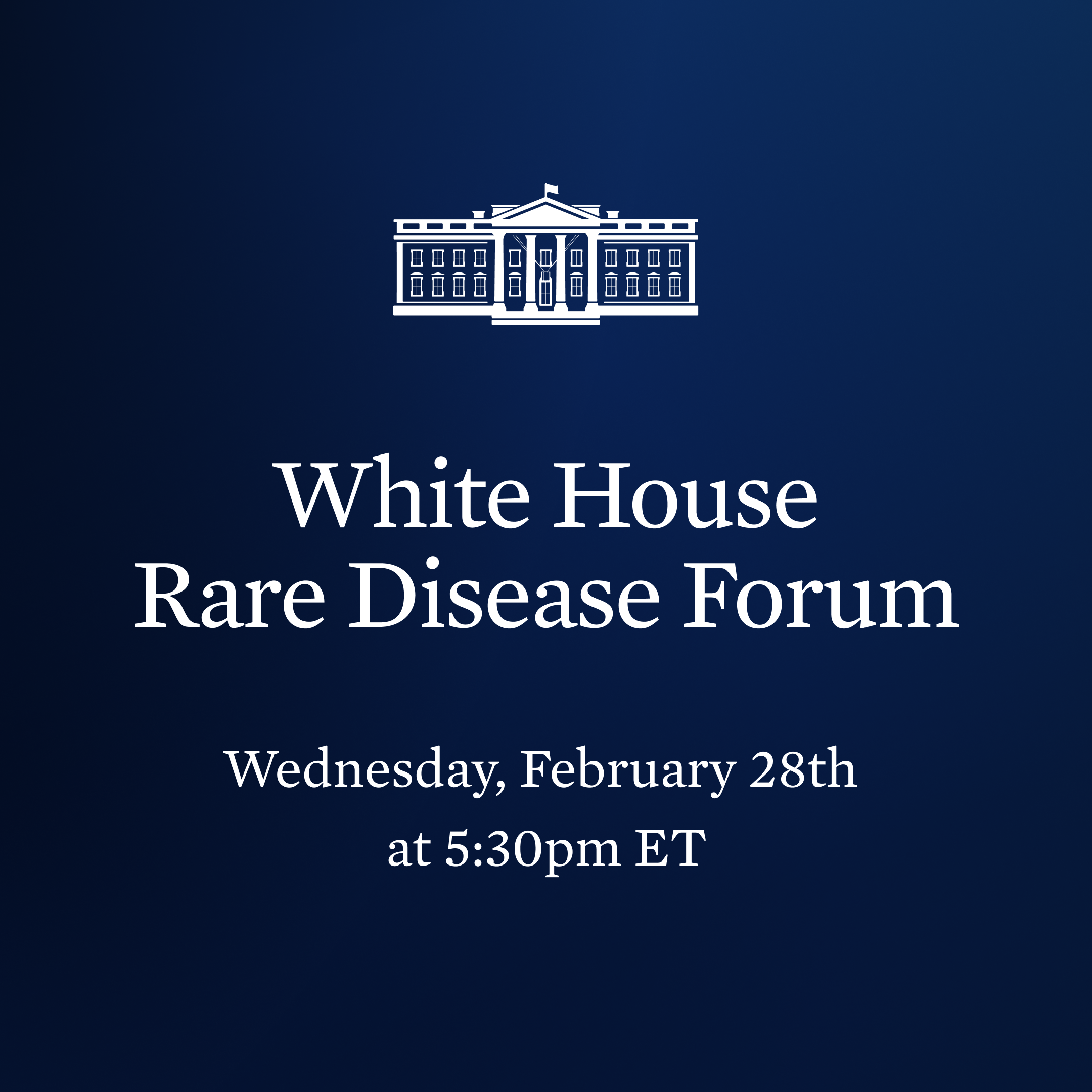We Were in the House … The White House
The White House Office of Science and Technology Policy Hosted The White House Rare Disease Forum
Our own Charlene Son Rigby was a panelist at the Rare Disease Forum on Wednesday, February 28, 2024. Charlene shared her thoughts on Next Gen Advocacy and how the role of Patient Advocates has changed and evolved in advancing therapeutic development in rare diseases.
The panel on “Policy Challenges and Opportunities in the Rare Disease Community” starts at 0:59 on the YouTube video progress bar.
Watch the recording on The White House YouTube channel here
Event Details
On Wednesday, February 28, as part of the Biden-Harris Administration’s goal to improve health outcomes, the White House Office of Science and Technology Policy hosted a forum marking Rare Disease Day and highlighting the Biden-Harris Administration’s commitment to supporting patients and families facing a rare disease and delivering progress against the nearly 10,000 known rare diseases that impact up to 30 million Americans. Leaders from the Biden-Harris Administration and the private and nonprofit sectors will work together to:
Elevate the experiences and expertise of people and families facing rare diseases;
Share developments from the Biden-Harris Administration and rare disease community and learn from one another to accelerate progress;
Identify opportunities to improve rare disease diagnosis, advance research and access to innovation to deliver effective treatment, and boost support for patients and families.
WHEN: Wednesday, February 28, 2024
WHERE: The event recording can be seen at https://youtube.com/live/uG43oLZzeBE
WHAT: “Policy Challenges and Opportunities in the Rare Disease Community” starts at 1 hour 15 minutes in the video timeline
Panelists
Dr. Arati Prabhakar, Assistant to the President for Science and Technology, Director of the White House Office of Science and Technology Policy
Dr. Danielle Carnival, Deputy Assistant to the President for the Cancer Moonshot, Deputy Director for Health Outcomes, White House Office of Science and Technology Policy
Dr. Monica Bertagnolli, Director, National Institutes of Health
Dr. Renee Wegryzn, Director, Advanced Research Projects Agency for Health
Nasha Fitter, Co-founder, FOXG1 Research Foundation
Emily Kramer-Golinkoff, Co-founder, Emily’s Entourage
Dr. David Fajgenbaum, Co-founder, Every Cure
Shonta Chambers, Executive Vice President-Health Equity Initiatives and Community Engagement at Patient Advocate Foundation
Dr. Joni Rutter, Director, National Center for Advancing Translational Sciences
Tamar Thompson, Vice President, Head of Global Corporate Affairs, Alexion, AstraZeneca Rare Disease
Dr. Edward Neilan, Chief Medical and Scientific Officer, National Organization for Rare Diseases
Charlene Son Rigby, Chief Executive Officer, Global Genes, Co-Founder and Board Chair of STXBP1 Foundation
Tania Simoncelli, Vice President, Science and Society, Chan Zuckerberg Initiative
Julia Tierney, Deputy Center Director (Strategy, Policy & Legislation), Center for Biologics Evaluation & Research, Food and Drug Administration
Paul Melmeyer, Vice President, Public Policy and Advocacy, at the Muscular Dystrophy Association
Kim McClellan, President of the Recurrent Respiratory Papillomatosis Foundation
Annie Kennedy, Chief of Policy, Advocacy, and Patient Engagement, EveryLife Foundation
The Orphan Drug Act defines a rare disease as a disease or condition that affects fewer than 200,000 people. In the United States, rare diseases affect more than 30 million people in total. Of nearly 10,000 known rare diseases, only 5% have an FDA-approved treatment option. Recent scientific and technological advancements have provided hope for understanding and delivery of new treatments for rare diseases, but significant work remains to address this critical public health issue that affects about 1 in 10 Americans.


